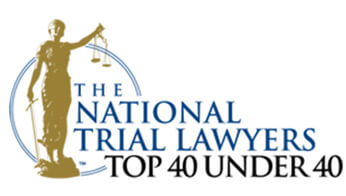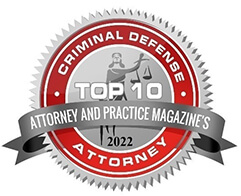Staten Island Welfare Fraud Lawyer

Staten Island Welfare Fraud Attorney
Welfare is designed to help those who may be struggling to provide life’s necessities for themselves or their families. However, when a person knowingly uses false information to obtain these benefits, they are committing welfare fraud. If you are facing these charges, contact a Staten Island welfare fraud lawyer immediately to begin your defense.
The support provided by welfare through the federal government includes Medicaid, food stamps, housing benefits, the Home Energy Assistance Program, and various other financial aid. However, any of these programs can be susceptible to fraudulent activities.
At The Vitaliano Law Firm, our criminal defense attorney understands that welfare fraud is not only a serious charge for those directly accused of it, but it can also result in charges against family members or others who are knowingly aware of the fraud. From large-scale organized activity to individual violations, our team can help with any number of welfare fraud charges. You deserve a defense that is built on knowledge and experience when fighting these accusations.
Welfare Fraud Charges
Welfare fraud can be charged at a variety of criminal levels in Staten Island, NY. The circumstances surrounding the case will determine at which level the charges may be applied. The fraud itself, however, occurs when a person or entity knowingly:
- Provides false information to obtain welfare benefits
- Pretends to be a fictitious person
- Fails to report a family member when there is knowledge that fraud is occurring
The types of fraud charges include:
- Fifth-degree welfare fraud. This charge is considered a Class A misdemeanor, which means that it is punishable by up to one year in jail. These charges may be filed when a person knowingly attempts to commit fraud under New York State law.
- Fourth-degree welfare fraud. As a Class D felony, this charge is punishable by prison terms of up to seven years. To receive this charge, you must not only have knowingly committed fraud, but you must have also received benefits totaling more than $1000.
- Third-degree welfare fraud. Like a fourth-degree charge, this is a Class D felony punishable by up to seven years in prison. However, the difference between fourth- and third-degree fraud is the amount of benefits received. A third-degree charge must involve the receipt of more than $3000.
- Second-degree welfare fraud. This charge is a Class C felony, and it could result in a prison term of up to fifteen years. This level of charge means that there was a receipt of benefits totaling more than $50,000.
- First-degree welfare fraud. The most severe welfare fraud charge, this charge is a Class B felony. As such, the penalty could include a prison term of up to 25 years. This charge is accompanied by evidence claiming that you received over one million dollars in government benefits.
Welfare Fraud Investigations
If you are being investigated for welfare fraud, it is important to know the steps that will occur so you can better defend yourself. As you anticipate each step, you can work with your attorney to ensure that you have the evidence you need to defend such charges. The investigation will begin with the claim that one of the following happened or didn’t happen:
- You did not provide accurate information regarding your sources of earned or unearned income.
- You did not disclose any financial contributions that you received from others.
- There was a failure to report that a child’s parent was living with them or supporting them.
- Employment letters that were provided to the Human Resources Administration (HRA) were fake.
- You are responsible for running businesses that operate in cash but show very little income.
- There was a failure to disclose property or bank accounts.
Investigations will begin after the government receives an initial report from any number of places. This could be an anonymous tip, a tip from a family member, or simply because there is a concern that the information you provided is not accurate.
During the investigation, the HRA will gather evidence, including financial and employment records, along with any witness statements that may be pertinent. Once the investigation is complete, the HRA will determine if any charges need to be filed.
FAQs
Q: What Happens If You Get Caught Lying for Food Stamps in New York?
A: Food stamp fraud is one way in which people could take advantage of the welfare system. Depending on the circumstances of the case, you will likely be charged with a felony and, if convicted, you could face prison time and a permanent criminal record. If you are charged with food stamp fraud, seek the counsel of a qualified criminal defense attorney who can help you understand the potential consequences that you could face.
Q: Can You Go to Jail for Food Stamp Overpayment in NY?
A: Taking advantage of food stamp benefits could result in a potentially lengthy prison term. Depending on the circumstances of the violation, prison terms could be as long as 25 years. In addition, you may face other penalties, such as the repayment of stolen benefits and being banned from entering the program in the future.
Q: What Is Welfare Fraud in the 4th Degree in NY?
A: Welfare fraud in New York is broken into five degrees of infractions. A fifth-degree fraud charge is a misdemeanor and the least punishable. Consequences could include minimal jail time and fines. However, if you are charged with fourth-degree welfare fraud, you will be facing a felony charge, which is punishable by up to seven years in prison. It will also be permanently on your criminal record. The fraud must have involved more than $1000 to incur this charge.
Q: What Is the Burden of Proof for Fraud in NY?
A: To prove that fraud has occurred in New York, five elements of the crime must be proven. These include:
- There was a misrepresentation of the facts, or they were not provided.
- This misrepresentation or omission was done intentionally.
- The intention was meant for the purpose of defrauding.
- The fraud was against the plaintiff in some way.
- The resulting fraud caused damage to the plaintiff.
Staten Island Welfare Fraud Lawyer
Charges of welfare fraud can be very serious and carry significant consequences. If you have been charged with welfare fraud, you deserve an experienced and knowledgeable attorney who can help create a unique defense based on the circumstances of your case. At The Vitaliano Law Firm, our team takes time to understand the evidence against you to provide you with the help you need. Contact our offices today for a consultation.
Testimonials






